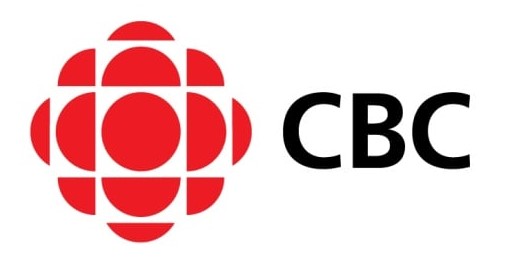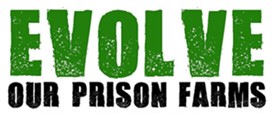Investigation into CBC’s coverage of the reintroduction of prison farms

Jack Nagler
CBC Ombudsman
SUBJECT: Request for investigation into CBC’s coverage of the reintroduction of prison farms
August 9, 2021
Dear Mr. Nagler,
I am writing to request a review of an issue of concern: CBC’s coverage (and selective lack thereof) of matters pertaining to the prison farm program being introduced in Kingston, Ontario.
CBC covered the former prison farm closures in 2009-2011, highlighting the advocacy of a special interest group (Save Our Prison Farms and its subsidiary Pen Farm Herd Co-Op) whose goal was to see the farms return and sell their cows to the Correctional Service of Canada (CSC). When the government promised to reintroduce prison farms (2016 onward), CBC covered this extensively also. However, CBC has maintained exclusive focus on this special interest group and the return of their cows (plus some beehive stories).
Almost completely absent from CBC’s coverage is the major livestock enterprise at the core of the new prison farm program, which is to be a 2200-goat industrial facility producing milk for external sale. The former prison farms fed prisons; the new farms are a multi-million-dollar for-profit commercial operation. Our advocacy group Evolve Our Prison Farms has worked since 2016 to investigate and raise awareness of the ethical and environmental concerns related to this new prison farm model, which essentially represents the commercialization and industrialization of prison labour in Canada.
Since 2016, we have submitted multiple media releases to CBC, none of which have resulted in any coverage of the prison industrial goat farm. We have contacted numerous CBC journalists, a few expressed initial interest but none followed through. We continued to submit documentation obtained over years of filing Access to Information (ATI) requests with CSC, Public Safety, the Prime Minister’s Office, AAFC, and the Canadian Dairy Commission. Numerous documents and statements from correctional staff confirm that CSC intends for its industrial goat operation to supply milk to the new Feihe International (Canada Royal Milk) infant formula facility in Kingston, for export to China. The Queen’s Business Law Clinic conducted a legal review for us and determined that this would constitute a violation of human rights under standards set by the United Nations. This was also submitted to CBC.
In 2019, a filmmaker was hired by CBC to produce a documentary film on the return of the prison farms. I was interviewed by this filmmaker, on camera, as was a former prison farm worker who shares our concerns over the new prison farm model. After reading the synopsis of the film at the link above, I contacted the filmmaker to find out why there is no mention of our concerns or any mention of the major livestock enterprise beyond a passing mention of “baby goats” at the end. The filmmaker told me that she had originally included this paragraph: “The film will touch on some of the ethical issues, and even give focus to criticism of the program in an effort to give a balanced argument.” She said she was pressured to remove the paragraph and had to renegotiate to keep her job. It is unclear whether the pressure came from CBC or CSC, but any effort to manipulate a documentary filmmaker in this way should be a story in itself.
We filed ATI requests into CBC’s coverage of the prison farms and its financial investment in the documentary. The releases were redacted almost in their entirety except for my own emails and reports. The only information that could be gleaned from 313 nearly blank pages is that the filmmaker was given this simple mandate for the documentary: “Prison Farm follows a group of inmates as they begin a new farming project within their prison, watching as their efforts with livestock and crops contribute to remarkable rehabilitation.”
There is reason to believe that the ”remarkable rehabilitation” that CBC is financially invested into promoting has put CBC in a conflict of interest position. As we have continued our investigation into the unfolding program, we have sent regular updates to CBC journalists with documentary evidence of the 2200-goat industrial plan (which will include construction of a manure lagoon at Joyceville Institution); the unexplained deaths of at least 15 calves in 2020; and the connection between the prison farms and the Feihe infant formula factory, which has been reported by at least a dozen media outlets (Kingston Whig-Standard, Frontenac News, Ontario Farmer, Hill Times, Global News, iPolitics, London Free Press, Radical Philosophy Review, Ottawa Citizen, Kingstonist, Briarpatch Magazine, and Geez Magazine) but never by CBC.
In spite of the evidence, CBC continued to publish feel-good stories on the prison farms with a focus on the above-named special interest group. (Of note: Minister Goodale’s appointment of this special interest group to the Prison Farm Advisory Panel prompted an investigation by Conflict of Interest and Ethics Commissioner Mario Dion, which CBC was also notified about but never covered.) Separately, CBC ran a series of major exposés into workplace abuses and dangerous malfunctions at the Feihe facility, without any mention of the potential addition of prison labour to the long list of scandals associated with this business. I posted comments on some of these CBC news stories, connecting the prison farms with Feihe, but my comments were “deactivated.” Since then, all comments I post on CBC articles do not appear, leading me to wonder if I have been blocked by CBC even though I never posted a comment that was offensive, inappropriate, or untrue. Since CBC is a crown corporation, and since I have witnessed and documented the coordinated manipulation of public messaging on the prison farms by CSC and Public Safety, it is within the realm of possibility that CBC is complicit also. The mounting evidence certainly suggests that this is so. The special interest group so extensively covered by CBC has publicly boasted that it names newborn calves after CBC journalists who have run favourable stories on the prison farms. ATI documents reveal that at least one CBC journalist, Maureen Brosnahan, received updates sent to shareholders of the Pen Farm Herd Co-Op, suggesting that she may be among over 200 shareholders with a vested financial interest in the cows being sold to CSC.
Our group has held many demonstrations over the years in front of Collins Bay Institution. These were never covered by CBC, not even when we held a demonstration at the entrance to the institution on the day of the media event for the official launch of the prison farms in 2019. CBC reporters drove past us without stopping and made no mention of the protest in their coverage of the event. We were impossible to miss, and we were interviewed by other news outlets such as APTN. At one point I saw Amanda Pfeffer getting into a CBC van that was parked nearby. Before she drove away, I managed to ask her whether she was going to do a story on the goats. She asked where the infant formula factory was. I pointed northward, “Five kilometres straight up that road.” She said she would go check it out. When I followed up with her afterwards, she assured me she would do a story but no story emerged. When I followed up later, she told me that the federal government wants to wait until the contract process is underway before agreeing to an interview. To this day, CBC has not covered this issue despite countless follow-ups on my part (with her and other CBC journalists including Janyce McGregor, Kathleen Harris, Samantha Craggs, Evan Dyer, Emily Chung, Aaron Wherry, Adrian Harewood, Ron McKeen, Paula Waddell, Inayat Singh, Adam Carter, Bethany Lindsay, Falen Johnson, and JC Kenny) and ongoing submission of ATI documents that reveal an increasingly troubling prison farm story that has remarkably little to do with rehabilitation.
It is difficult to summarize how much effort has been fruitlessly invested into communication with CBC journalists to raise awareness of this matter of major social importance in Canada. The lone exception was Terry Haig of Radio-Canada who ran a brief story. He has since been laid off.
Recently, a 6,000-signature petition to remove the charitable status of the Catholic Church made CBC’s front page news. Our advocacy group has submitted nine petitions to the government over five years, sponsored by MPs Elizabeth May, Paul Manly, Scott Reid, and Mark Gerretsen, without coverage by CBC. Our current petition has just surpassed 50,000 signatures. Also ignored in our media releases to CBC was our endorsement by prominent Canadians such as David Suzuki and Margaret Atwood who share our opposition to the new prison farm model and our vision for alternatives. Likewise for the many experts in law, labour studies, criminology, and animal therapy who endorse Evolve Our Prison Farms, and the thousands of Canadians who have supported our campaign and participated in mailing 23,000 postcards to Minister Goodale in 2019. CBC has also failed to acknowledge the feedback we collected from hundreds of prisoners in Kingston and across Canada who voted overwhelmingly (75% in 2018-2019 and 94% in 2020-2021) against the new prison farm model and in favour of a non-profit therapeutic model serving a social justice purpose (e.g. feeding prisons and food banks). At this point, we have stopped issuing media releases to CBC altogether, as it has proved completely ineffective over the past five years.
In January 2021, Evolve Our Prison Farms produced a 100-page report written by two academics, which made headlines in The Conversation, National Post, Kingston Whig-Standard, Frontenac News, Ontario Farmer and other media, but not CBC. Soon after, in March 2021, the Correctional Service of Canada quietly announced the temporary pause of its goat farming plan. This also received no coverage by CBC, even though the entire prison farm program that CBC has so enthusiastically promoted is dependent on the success of the goats as the major enterprise and sole revenue stream. In other words, if the goats fail, the entire program fails. It now appears likely that the prison farms are on course to re-closure, and all of this has unfolded in the absence of journalistic coverage by CBC. Canadian prisoners were almost put to work for China, our advocacy group has investigated, exposed, and opposed this violation, and we have potentially prevented the construction of a federally funded factory farm and the privatization of prison labour in Canada, without any coverage by CBC.
I am requesting a full investigation into how this happened.
Thank you,
Calvin Neufeld
Founder, Evolve Our Prison Farms
www.evolveourprisonfarms.ca
CC: Diane Girard, CBC Values and Ethics Commissioner
